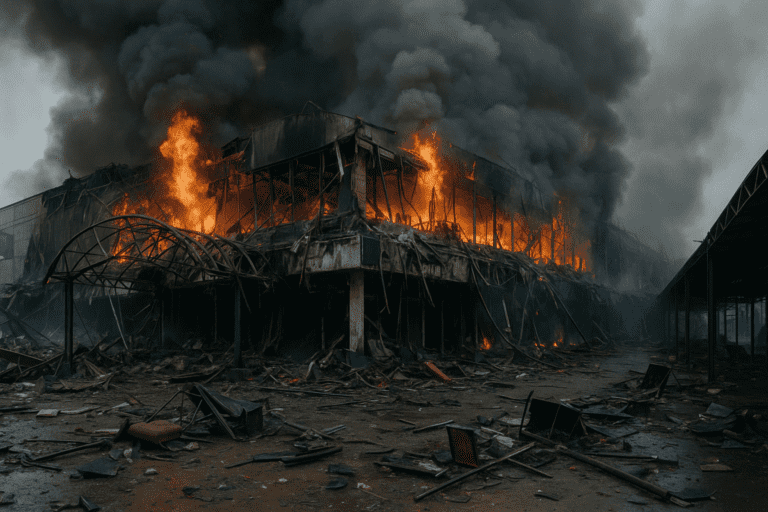On March 1, 2024, Moscow was rocked by a horrific terrorist attack at Crocus City Hall, a popular concert venue located in a suburb of the city. The bombing, which killed at least 145 people and injured over 500, became Russia’s deadliest act of terrorism in two decades. The venue was packed with music fans enjoying a live concert when attackers detonated explosives, causing massive destruction and panic. The scale and brutality of the attack left the nation—and the world—in shock.
ISIS Claims Responsibility
The Islamic State (ISIS) quickly claimed responsibility for the attack, signaling a worrying expansion of the group’s operational reach far beyond its Middle Eastern strongholds. This development highlights the growing threat posed by ISIS and similar extremist organizations, demonstrating their capability to target high-profile civilian locations in major world capitals.
The Attack and Immediate Aftermath
Eyewitness reports describe attackers, believed to be wearing explosive vests, setting off bombs inside the crowded hall, triggering chaos as walls were torn apart and parts of the building partially collapsed. Fires broke out, complicating rescue efforts. Emergency responders, including firefighters and paramedics, rushed to the scene to extinguish flames, evacuate survivors, and provide medical treatment. Hospitals were quickly overwhelmed with casualties, many in critical condition, underscoring the catastrophic impact of the bombing.
Rising Security Concerns in Russia
This attack starkly highlights the security challenges facing Russia, a country long targeted by terrorists due to its geopolitical stance and involvement in regional conflicts. While Russia’s counterterrorism focus has traditionally centered on volatile areas such as Chechnya and the North Caucasus, the Crocus City Hall bombing reveals a dangerous shift—terrorist groups are increasingly capable of striking high-profile civilian sites deep within the country’s urban centers.
Experts warn this may indicate the beginning of a broader campaign to destabilize Russia from within, posing new challenges for domestic security and intelligence operations.
Russian Government Response
President Vladimir Putin condemned the bombing as a “barbaric terrorist act” and declared a national day of mourning. State funerals were held, and the government vowed to strengthen its fight against terrorism. Promises were made to tighten security at public venues and implement stricter anti-terrorism laws.
However, the government’s response has also raised concerns. Critics fear the tragedy may be used as justification for expanding authoritarian controls, including increased surveillance, restrictions on civil liberties, and crackdowns on political opposition and independent media, tightening state control under the guise of national security.
International Reactions
The attack drew swift international condemnation, with global powers like the United States and the European Union expressing solidarity with Russia and offering assistance in intelligence sharing and counterterrorism efforts. Yet, some international voices caution that the tragedy might enable Moscow to further erode democratic freedoms, warning against the use of anti-terrorism measures as a cover for political repression.
Looking Ahead: A Global Challenge
The Moscow bombing underscores the evolving nature of global terrorism, highlighting the difficulty in combating decentralized networks that can strike anywhere at any time. For Russia, the immediate priority is to enhance security and prevent future attacks. However, the attack’s broader implications could see an intensification of authoritarian governance, justified by the need to safeguard national security.
As the international community grapples with terrorism’s human cost and the need to protect freedoms, this tragic event serves as a grim reminder of the ongoing challenges in balancing security with civil rights in an increasingly dangerous world.


